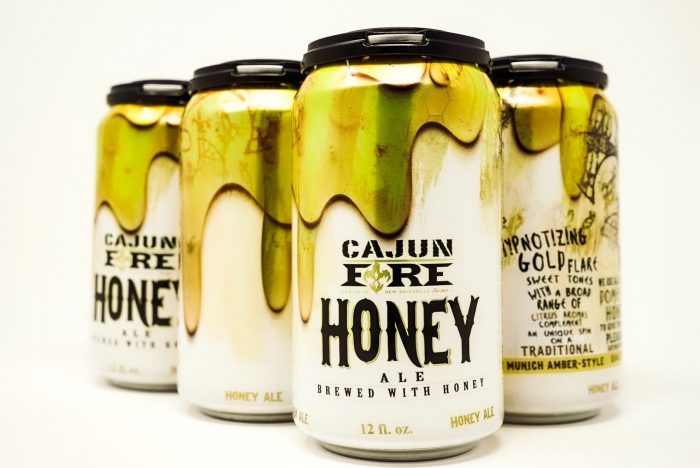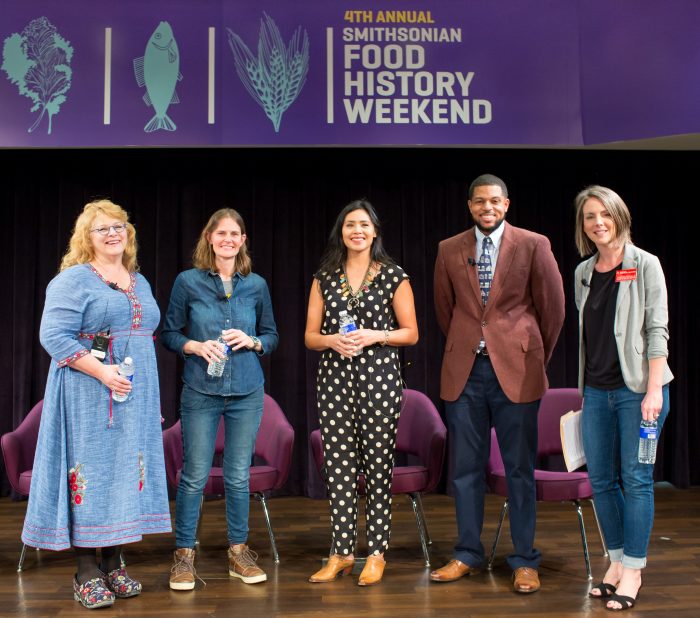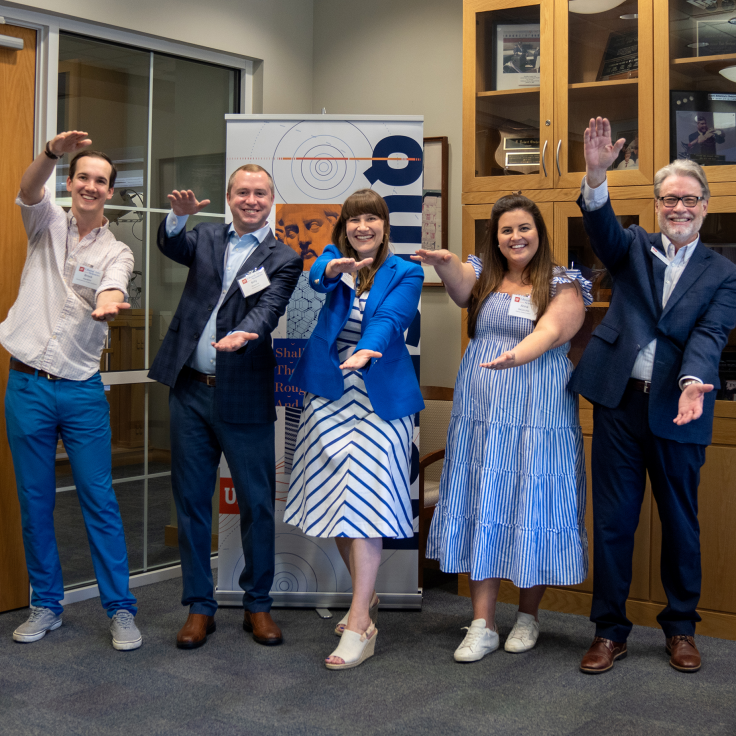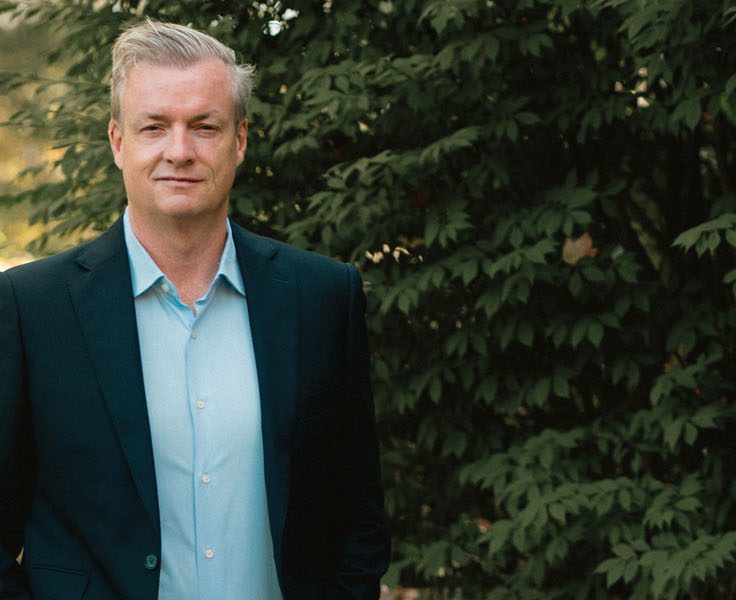
Finding His Spark: Jon Renthrope and Cajun Fire Brewery
Alum makes history as the founder of the fifth Black-owned brewery in the U.S.
When JON RENTHROPE attended the University of Florida, he found himself wondering where all the good food was. While many might argue that Gainesville has a thriving food scene, most cities have trouble comparing to Renthrope’s hometown of New Orleans. Yet it was during his time in Gainesville where the 2010 political science graduate encountered something missing in his native culinary scene that would go on to help him make history — craft beer. Just one year after graduating, Renthrope founded and began serving as the CEO and brewmaster of Cajun Fire Brewing Company, only the fifth Black-owned brewery in the history of the United States and the first in the South.
Renthrope grew up knowing many families of restaurateurs, so he always assumed joining the culinary field was a forgone conclusion. Forced to relocate to Florida after Hurricane Katrina devastated his hometown, Renthrope brought his plans and equipment along so he could make classic New Orleans cuisine and build relationships with his fellow students. “You take it for granted how different things are outside of where you are born,” he said, explaining that at UF he was introduced to people from all cultures and walks of life. “I got to experience an international bubble.”
Yet Renthrope felt as though his culinary skills weren’t quite where he’d like them to be and instead found himself drawn to another passion: political science. Funnily enough, throughout his studies, his home state of Louisiana kept coming up — mainly in case studies about corruption in the state throughout the 1990s. This changed Renthrope’s ambitions of eventually becoming involved in politics, forcing him to realize that to make real change, he’d have to do it as a private citizen. “If I wanted to make the biggest impact in politics, I had to go into business,” he said.

At the same time, Renthrope was becoming acquainted with craft beer in Gainesville and became interested in learning how he could brew it himself. Internet searches proved unhelpful, so Renthrope had to “dive in to find a network of homebrewers,” he said. This interest stuck and paved the way to make an impact on his hometown. When Renthrope returned to New Orleans after graduation, he saw an opportunity in the market for a new craft brewery that could also play a positive role in the community.
This was the first spark that gave light to Cajun Fire. Once Renthrope decided he wanted to launch his own brewery, he took on apprenticeships across the country to hone his skills before founding the brewery in October 2011 with fellow UF alums Adam Dawson (’11, fine arts) and Paul Taylor (’11, anthropology), his wife Courtney Wilson-Renthrope and Jomarque Renthrope — who also graduated from universities in Florida. As an upstart small business, Cajun Fire lacked a human resources staff and other resources typically found in more established companies, which meant that Renthrope had to be “much more proficient and strategic,” he said, to grow the business and hire the right people.
If I wanted to make the biggest impact in politics, I had to go into business.
— Jon Renthrope
And grow it did. Today, Cajun Fire beers can be found in more than 100 individual retailers including the supermarket chain Rouse’s, Trader Joe’s and Total Wine. Renthrope attributes the business’s success to being mindful of how their beers can complement the local cuisine along with a firm understanding of what brand and flavors will resonate with their customers. His Honey Ale, for example, is brewed with domestic honey, which allows it to last longer on shelves while providing a unique pairing option. Even the pandemic couldn’t slow Cajun Fire down for long — the brewery initially lost 30% of its volume capacity, Renthrope said, but they were able to stabilize and become profitable. Furthermore, to counter pandemic related disruptions, Renthrope expanded Cajun Fire’s market footprint into the states of Michigan, Georgia, North Carolina, and the Providence of Ontario, Canada. Renthrope was also recognized as a 40 Gators Under 40 by the UF Alumni Association in 2019 for the significant impact he has made on his industry and his civic accomplishments.
As a Black brewmaster, Renthrope describes himself as a pioneer in craft beer manufacturing and ownership. Though diversity in the industry has slowly trended upwards from when he first founded Cajun Fire, a survey conducted in 2019 by the Brewers Association still showed 89% of brewers identifying as white. As the first founder of the first Black-owned brewery in the South, Renthrope was invited to an event hosted by the Smithsonian where he shared the stage with multiple female brewery CEOs from across the country — a similarly rare sight in a predominantly male industry.

Along with his work through the brewery, Renthrope serves as an executive board member for the 100 Black Men of Metro New Orleans Chapter, where he helps mentor youths in the community and works to ensure underserved communities have internet accessibly, which he described as “a necessity.”
As Cajun Fire continues to grow and expand, Renthrope has further plans in mind to help his local community — the company controls 9.8 acres of commercially zoned land with eyes toward constructing a new production warehouse along with a museum and taproom. The company has also raised more than $700,000 for local philanthropies and non-profit organizations in the New Orleans Parish community. All of this is essential work toward revitalizing the Eastern New Orleans community, an area that was devastated by Hurricane Katrina.
For those interested in following in Renthrope’s footsteps and starting their own business, he offers this advice: “Get out of your own way and be a sponge in the room.”
“Continue to be in a cycle of learning and never get comfortable. Once you stop learning, you stop. I’ve definitely turned out some terrible batches of beer. But keep working, and when you look back you might be on that path for 20 years and see the impact you’ve made. It’s a good feeling.”


